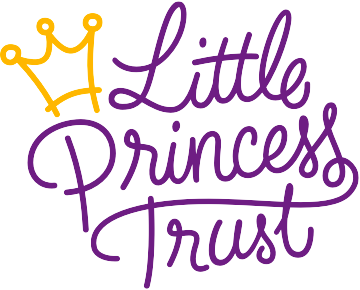Little Princess Trust News
Exciting new research funded into rare childhood cancers

More knowledge is "urgently needed" for these hard-to-treat cancers
The Little Princess Trust has funded research into two rare cancers, malignant germ cell tumours and hepatocellular carcinomas, for the very first time.
These are the first projects funded by the LPT for these hard-to-treat cancers. This funding supports urgently needed research to understand these cancers and to improve care.
Wendy Tarplee-Morris, Director of Services and Impact at the LPT, said: "At the Little Princess Trust, we are committed to providing Hair and Hope to all young people with cancer, through our wig service and our many childhood cancer research projects.
“We're proud to be funding research into malignant germ cell tumours and hepatocellular carcinomas for the first time.
"Each piece of research offers hope for a better future for children with these rare cancers. We believe every child deserves a safe and effective treatment, no matter how rare their cancer is.”
What are the origins of liver cancer in children and why does treatment sometimes fail?
Dr Jake Mann, at the University of Birmingham, will study the development of hepatocellular carcinomas. This type of childhood liver cancer is rarely seen in the UK and has few treatment options.
Dr Mann said: “We want to understand more about what causes a rare liver tumour in children and how it avoids being destroyed by the body’s immune system.
"There are few treatments for this cancer so we hope that our studies will uncover a new direction for the development of drugs.

“The immune system controls cancer growth, but there aren’t yet any treatments for childhood liver cancer that use the immune system for benefit.
"This type of treatment has been very effective in adults. By learning more about the immune system in terms of liver cancer, we hope to make immune-targeting treatment possible.”
The research team will be using cutting-edge techniques to study children’s cancer samples. Dr Mann has also assembled a group of experts in liver cancer, the immune system, and genetics. He said:
“We are delighted to work on this exciting project and, together, we think we can make a useful contribution to the field. If our initial results are encouraging, we will aim to apply for funding to conduct a larger and even more ambitious study.”
What role do small pieces of genetic code play in germ cell tumours, and how could this improve treatment?
The second new project focuses on malignant germ cell tumours, which normally grow in the reproductive organs.
This type of cancer is rare in children, affecting only around 50 each year in the UK, although is more common in young adults.
Professor Matthew Murray is leading the new project from the University of Cambridge.
He said: “Although most patients with germ cell tumours do well, some high-risk patients have poor outcomes. We are aiming to develop new and more effective treatments for germ cell tumours.

"We hope this will give children and young people with these tumours the best chance of survival with a good quality of life.
In this project, Prof Murray will be looking at a type of genetic molecule, called short non-coding RNAs.
The levels of these molecules are abnormal in germ cell tumours and affect the levels of proteins in cancer cells, changing their behaviour to allow them to become aggressive.
Prof Murray will look for medicines that can correct the levels of these short non-coding RNAs in cancer cells. He believes this could slow down germ cell tumour growth and aggressiveness. He said:
“Our team is genuinely over the moon to receive this funding!
"It is exciting to know that we will soon understand much more about how short non-coding RNAs affect germ cell tumours.
"This knowledge will allow us to develop more effective treatments for children and young people.
“We are so grateful to The Little Princess Trust and all their supporters for their generosity.
"Without it, we would not be in a position to push this important work forward.”



